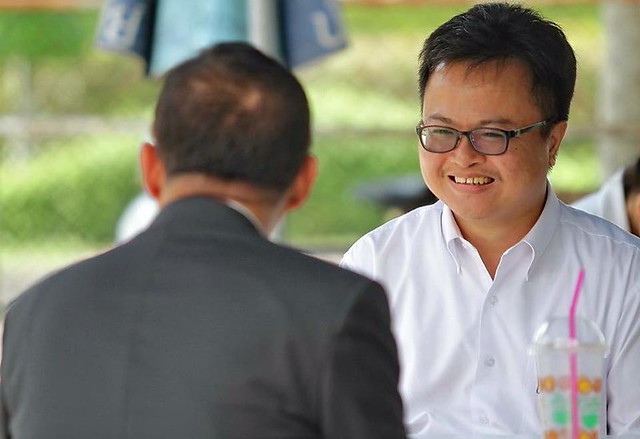
Feb 17, 2021 | News, Non-legal submissions
In a joint letter to the President of the Lawyers Council of Thailand, the ICJ and Lawyers for Lawyers raised concerns on the disbarment proceeding against Mr. Anon Nampha, a lawyer and human rights defender. The organisations believe that the proceedings unduly interfere in his work as a lawyer and serves to impair the exercise of his human rights, including the right to freedom of expression.
Dear President of the Lawyers Council of Thailand,
Re: Disbarment Proceedings Against Mr. Anon Nampha
Lawyers for Lawyers is an independent and non-political foundation that seeks to promote the proper functioning of the rule of law by pursuing freedom and independence of the legal profession.
International Commission of Jurists (ICJ), a global non-governmental organization composed of 60 eminent judges and lawyers, works to advance understanding and respect for rule of law as well as the legal protection of human rights throughout the world.
We write to your office concerning the disbarment proceeding against Mr. Anon Nampha, a lawyer and human rights defender, that is taking place before the Investigative Committee that was established by the Committee on Professional Ethics of the Lawyers Council of Thailand during the Meeting No. 1/2564 on 13 January 2021. We are concerned that the proceeding unduly interferes in his work as lawyer, including in representation of clients, and serves to impair the exercise of his human rights, including the right to freedom of expression.
According to our information, we understand that the proceeding against lawyer Anon Nampha is related to a complaint motion filed to the Lawyers Council of Thailand on 7 August 2020 by Mr. Aphiwat Khanthong, Assistant Minister in the Office of the Prime Minister, claiming to be acting in his capacity as a private attorney at Or Amporn Na Takua Tung and Friends Law Office. Mr. Aphiwat Khanthong alleged that lawyer Anon Nampha’s behaviour violated the Lawyers Council of Thailand’s disciplinary rules as, he claims, it would “incite, intend to cause unrest, distort information and insult on the monarchy”. The alleged speech in question apparently called for reform of the monarchy, during a Harry Potter-themed protest at the Democracy Monument on Ratchadamnoen Avenue on 3 August 2020.
Under international law and standards, lawyers, like other individuals, enjoy the right to freedom of expression, belief, association and assembly. A lawyer should be able to draw the public’s attention to issues relating to public affairs in their official capacity as well as in their private capacity. Suspensions or revocations of lawyer licenses as a result of exercise of their legitimate rights and freedoms do not only impact on the exercise of the rights of the lawyers, but also on the rights of their clients to be represented by the lawyer of their choosing.
Download the full letter in English and Thai.
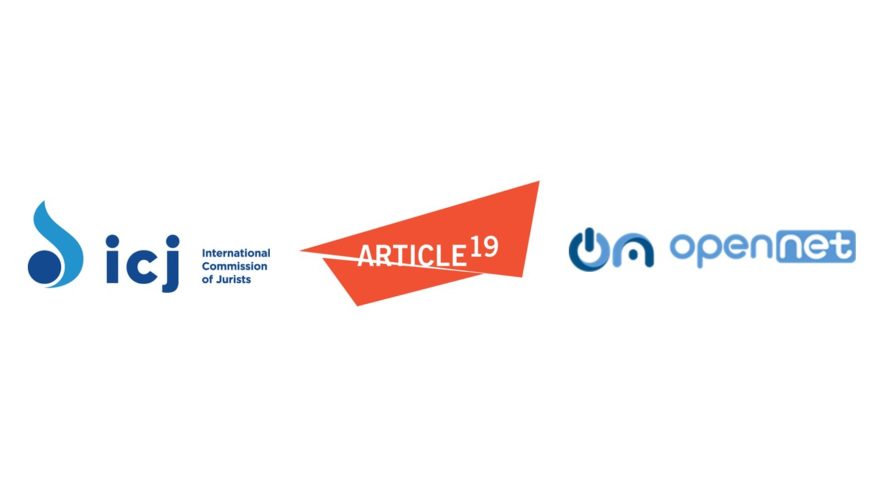
Feb 12, 2021 | Advocacy, News
The Myanmar military should immediately abandon the draft Cyber Security Law and end Internet restrictions it has imposed since taking power in a coup on 1 February, said ARTICLE 19, Open Net Association, and the ICJ today.
“It is telling that controlling cyberspace is one of the top priorities of the Myanmar military, which seized power through an illegitimate coup d’etat only last week,” said Sam Zarifi, ICJ’s Secretary General. “The military is used to having total power in Myanmar, but this time they have to face a population that has access to information and can communicate internally and externally.”
Under international law, the rights to freedom of expression and information may only be restricted if prescribed by law, in pursuit of a legitimate aim, and necessary and proportionate to that aim. This right applies equally online. In 2018, the UN Human Rights Council condemned ‘all undue restrictions on freedom of opinion and expression online that violate international law’.
“Having illegally seized control of government, the military is trying to ram through a hugely problematic law that would imperil the Myanmar public’s ability to share and access information online,” said Matthew Bugher, ARTICLE 19’s Head of Asia Programme. “The draft law is further evidence of the military’s intent to control online discourse and permanently undermine Internet freedom in the country.”
Human rights bodies and experts have repeatedly condemned Internet shutdowns, which are inherently unnecessary and disproportionate irrespective of their purported objectives. Four UN special procedures with mandates from the Human Rights Council stated in their 2011 Joint Declaration on Freedom of Expression and the Internet that, ‘Cutting off access to the Internet, or parts of the Internet, for whole populations or segments of the public (shutting down the Internet) can never be justified, including on public order or national security grounds’. The UN Human Rights Council has repeatedly called on Myanmar to lift Internet restrictions in the country.
Anonymity is furthermore crucial to protecting the right to freedom of expression and other human rights, including the right to privacy. UN Human Rights Council Resolution 38/7 recognizes that ‘privacy online is important for the realization of the right to freedom of expression and to hold opinions without interference, and the right to freedom of peaceful assembly and association’. The UN Special Rapporteur on freedom of expression in a 2015 report stated that restrictions on encryption must confirm to the three-part test on restrictions to the freedom of expression noted above.
“The ban on online anonymity in the cybersecurity law is not just bad for Myanmar but sets a dangerous precedent for the whole of Asia”, said Kyung Sin Park, Executive Director of Open Net Association, whose founders spearheaded a successful constitutional challenge against a similar law in South Korea in 2012. “The content takedown provisions and criminalization of online speech in the draft law are extremely broad and utterly lacking due process even in comparison to other Asian countries. The proposal smacks of a legislative attempt to extend the powers the military had taken in an unlawful, anti-democratic coup.”
ISPs, online service providers (as defined by the draft law to mean content providers) and other stakeholders have only been given until 15 February for input. This is a clear indication that the military has no intention of engaging in meaningful consultation.
On 10 February, a group of 158 Myanmar civil society organizations released a statement rejecting the draft Cyber Security Law, while reiterating their view that the Myanmar military could not legitimately exercise legislative authority.
“All online service providers inside and outside the country should be alarmed at this intrusion of military authority into cyberspace and refuse to implement these hugely problematic restrictions,” said ICJ’s Sam Zarifi.
SPECIFIC PROBLEMATIC PROVISIONS OF THE DRAFT CYBERSECURITY LAW (based on an unofficial translation of the draft law):
Many provisions in the draft law are vague and overbroad, in contravention of the principle of legality. If enacted, the draft law would greatly extend the powers of military authorities to restrict and punish online expression.
The law provides overarching control to the military’s ‘State Administration Council’, a newly-formed body appointed by the Commander-in-Chief. The direct military control of Internet service provision and its role in the policing of content online is in and of itself cause for alarm. Further, the military should in no circumstances be charged with protecting personal data.
Section 29 of the draft law is overly broad as it demands the prevention, removal, destruction and cessation of a broad and vaguely defined range of expression, including online comments deemed ‘misinformation’ or ‘disinformation’, any expression that causes hate and risks disrupting unity, stability, and peace, and ‘written and verbal statements against any existing law’.
Under section 64, any person convicted of creating ‘misinformation’ and ‘disinformation’ with the intent of causing public panic, loss of trust or social division in cyberspace is punishable by three years’ imprisonment, a fine, or both.
International human rights bodies have repeatedly urged governments against laws that create ‘false news’ offences, warning about their potential abuse by governments to suppress criticism and other forms of speech protected by international human rights law.
Section 30 threatens the right to online anonymity by requiring online service providers to retain usernames, IP addresses, national IDs, and other personal data for up to three years, and to provide this information to authorities upon request. For this purpose, Section 28 requires an online service provider to ensure that any device that stores the user’s information must be kept in a place designated by the relevant Ministry.
The draft law also has overly broad catch-all provisions in Sections 61 and 73 respectively whereby online service providers that fail to comply with any provisions of the draft law face a maximum penalty of three years’ imprisonment and a fine and individuals failing to comply with any rules, regulations, notifications, orders, directives, and procedures issued under the draft law are subject to one year’s imprisonment and a fine. These sanctions which are punitive in purpose and effective are non-compliant with the requirement of proportionality under international human rights law and standards on freedom of expression.
The draft law also provides for enhanced power to control the Internet without the benefit of judicial review by independent civilian courts. In the ‘public interest’, a ministry approved by the State Administration Council may temporarily prohibit any online service or take control of devices related to online service provision, as well as permanently ban any online service provider. This is a less stringent standard than that provided under the problematic and much-criticized section 77 of the Telecommunications Act, which allows for shut downs or control of telecommunications in an ‘emergency situation’.
Download
Statement in Burmese.
Contact
Osama Motiwala, ICJ Asia-Pacific Communications Officer, e: osama.motiwala(a)icj.org
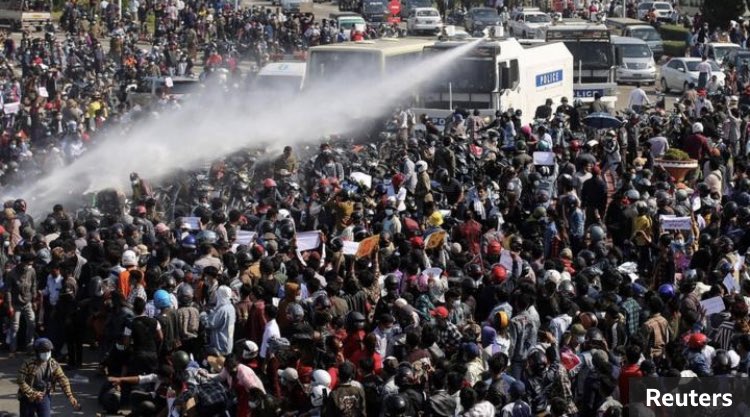
Feb 8, 2021 | News
The Myanmar military’s coup d’etat of 1 February is unconstitutional and fails to comply with basic rule of law principles, said the ICJ today.
“The Myanmar military’s actions violate even the flawed Constitution that the military itself imposed in 2008,” said Sam Zarifi, ICJ’s Secretary General. “The irregularities alleged by the military in the recent elections do not justify declaring a state of emergency and shattering the already weak rule of law in the country.”
The coup d’etat does not comply with the Constitution of the Republic of the Union of Myanmar 2008, which suffers from multiple shortcomings in basic respect for the rule of law and international human rights standards.
Article 417 of the Constitution requires the President to declare a state of emergency when there is a risk to the sovereignty of the country.
Article 418 requires the President to hand over all power to the Commander-in-Chief of the Army. Contrary to this provision, the state of emergency was declared by the Vice-President, after the military detained President Win Myint.
“The accountability of the military to the civilian authorities is a core rule of law principle”, said Sam Zarifi “Myanmar’s military leaders have turned this principle on its head by usurping total authority again.”
The ICJ is concerned that Myanmar’s Constitution provides for the possibility of suspending protections for a number of human rights, such as freedom of expression and association and the right to habeas corpus. Under international human rights law, derogations from certain rights are permissible only when strictly necessary to meet a specific threat to the life of the nation, conditions not met under the current emergency.
The right to habeas corpus is among those rights that may never be suspended. The writ of habeas corpus allows any person detained by any State agent, including during emergencies, to challenge the lawfulness of the detention.
“The right to test the lawfulness of any detention needs to be restored and the judiciary must be able to independently examine the legality of any arrests and detentions and order to release of those it finds are detained illegally” said Sam Zarifi.
Of particular concern to the ICJ is the near-total impunity provided to the military after the declaration of the State of Emergency, and the proliferation of arbitrary detention without recourse to legal review.
Article 432 of the Constitution effectively shields the military and security forces from any review of ’legitimate measures’ pursuant to the declaration of a state of emergency, which the ICJ notes also flies in the face of the rule of law.
“After the shock of the coup d’etat, we are now seeing brave lawyers and civil society activists trying to use peaceful means at their disposal to demand their rights,” Zarifi said. “This movement is not focused around an icon or even one party, but on the notion that the people of Myanmar should be able to government themselves and decide their future.”
Contact
Sam Zarifi, ICJ’s Secretary General, sam.zarifi(a)icj.org
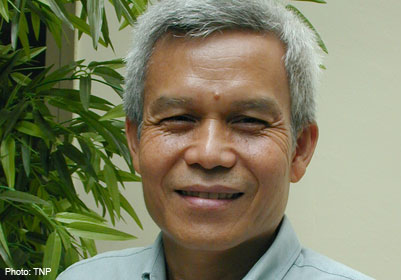
Dec 15, 2020 | News
On 15 December 2020, the eighth anniversary of the enforced disappearance of Lao civil society leader Sombath Somphone, the ICJ joined 53 organizations and 19 individuals in reiterating its calls on the Government to reveal his fate and whereabouts and to investigate his and all other cases of alleged enforced disappearance in the country.
The statement condemned the Government’s ongoing failure to adequately investigate all allegations of enforced disappearance in Laos, which has been compounded by years of near complete lack of commitment to address this serious crime or provide an effective remedy or reparation to its victims and their families.
In June 2020, during the third Universal Periodic Review (UPR) of Laos, the Government refused to accept all five recommendations that called for an adequate investigation into Sombath’s enforced disappearance. The Government failed to support another eight recommendations that called for investigations into all cases of alleged enforced disappearances in Laos. Despite the government accepting that “the search for missing Lao citizens, including Sombath Somphone, is the duty of the Lao government”, it has failed to evidence any political will to effectively execute or fulfill this duty.
Sombath Somphone was last seen at a police checkpoint on a busy street in Vientiane on the evening of 15 December 2012. Footage from a CCTV camera showed that Sombath’s vehicle was stopped at the police checkpoint and that, within minutes, unknown individuals forced him into another vehicle and drove him away in the presence of police officers. CCTV footage also showed an unknown individual driving Sombath’s vehicle away from the city center. The presence of police officers at Sombath’s abduction and their failure to intervene strongly indicates State agents’ participation in Sombath’s enforced disappearance.
Lao authorities have repeatedly claimed they have been investigating Sombath’s enforced disappearance, but have failed to disclose any new findings to the public since 8 June 2013. They have not met with Sombath’s wife, Shui Meng Ng, since December 2017. No substantive information about the investigation has been shared by the authorities with Ng or Sombath’s family, indicating that, for all intents and purposes, the police investigation has been de facto suspended.
The statement reiterated a call for the establishment of a new independent and impartial investigative body tasked with determining Sombath’s fate and whereabouts, with the authority to seek and receive international technical assistance to conduct a professional and effective investigation in accordance with international standards. This is a call which multiple signatory organizations have been making since his enforced disappearance in 2012.
The statement further urged the Lao government to ratify the International Convention for the Protection of All Persons from Enforced Disappearance (ICPPED), which Laos signed in September 2008; incorporate its provisions into the country’s legal framework, implement it in practice, and recognize the competence of the Committee on Enforced Disappearances to receive and consider communications from or on behalf of the victims.
The full statement is available here.
Contact
Kingsley Abbott, ICJ Senior Legal Adviser, e: kingsley.abbott(a)icj.org
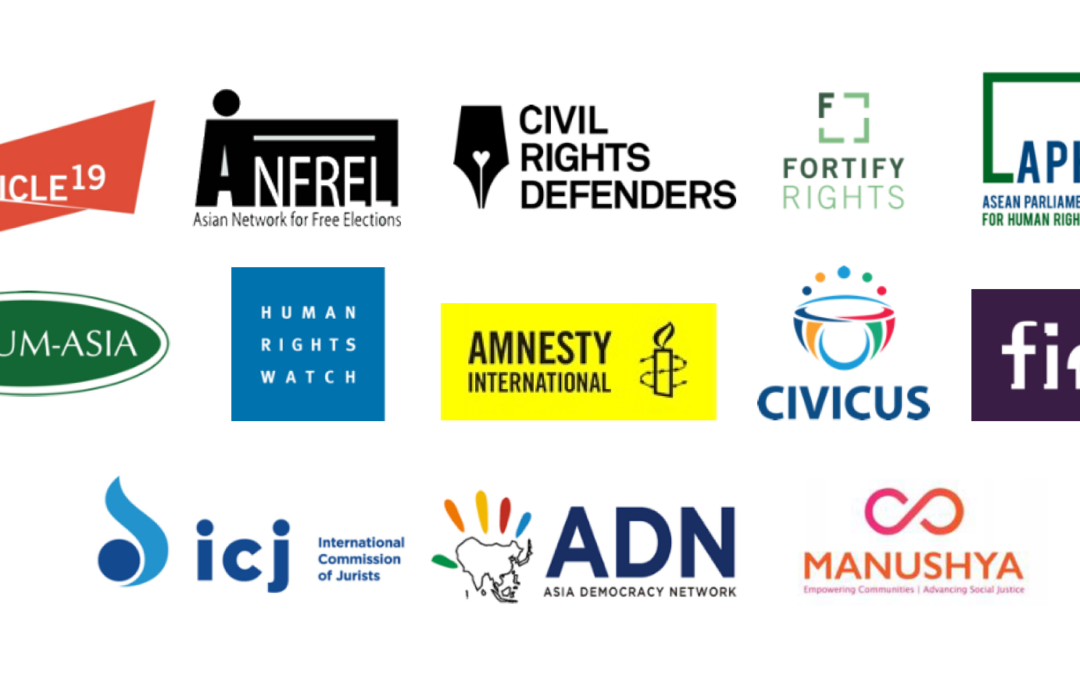
Nov 26, 2020 | Advocacy, News
Today, the ICJ joined other NGOs in condemning the Thai police’s use of force against peaceful protesters marching to the national parliament in Bangkok on November 17, 2020.
The statement reads:
We, the undersigned organizations, condemn the Thai police’s unnecessary and excessive use of force against peaceful protesters marching to the national parliament in Bangkok on November 17, 2020. We are concerned that authorities could employ similar measures when facing protesters who have declared they will march to the Siam Commercial Bank headquarters on November 25.
On November 17, police set out barriers and barbed wire to prevent a peaceful march organized by pro-democracy movements from reaching the parliament. Protesters planned to protest outside the parliament as members of parliament and senators debated seven different proposals for constitutional amendments, including an amendment proposed by the lawyers’ non-governmental organization iLAW (Internet Law Reform Dialogue), which was supported by the People’s Movement and its allies. Police refused to let protesters through the barriers, and when the demonstrators acted to breach those barriers, police crowd control units used water cannons laced with purple dye and an apparent teargas chemical, as well as teargas grenades and pepper spray grenades, to forcibly disperse thousands of demonstrators, including students, some of whom are children. Water cannons were first used at approximately 2:25 pm and police continued their efforts to disperse protesters, with constant use of water cannons, teargas and pepper spray into the evening.
Police also failed to prevent violence between pro-democracy protesters and royalist “yellow shirts” near the Kiak Kai intersection, near the parliament. Initially, riot police separated the two groups. However, video posted on social media later showed police officers informing the royalist protesters that they would withdraw and seconds later they vacated their position between the two groups. During the ensuing skirmishes, both sides were filmed throwing rocks and wielding clubs. Live broadcasts included sounds that appeared to be gunfire.
The Erawan Medical Centre reported that there were at least 55 protesters injured, mostly from inhaling teargas. It also reported that there were six protesters who suffered gunshot wounds. The injured included children: a kindergartener and elementary school students.
Although some pro-democracy protesters engaged in violent conduct in responding to royalist protesters, we emphasize that the overwhelming number of protesters were entirely peaceful. Furthermore, we wish to emphasize that while specific participants of an assembly who engage in violence are subject to a response that is lawful, strictly necessary and proportionate, they also retain all other human rights including the right to life, to security of person and to freedom from torture and other cruel, inhuman or degrading treatment or punishment.
International human rights law, as expressed in the International Covenant on Civil and Political Rights (ICCPR), which Thailand acceded to in 1996, protects the rights to freedom of expression (article 19) and peaceful assembly (article 21). But Thai authorities have routinely enforced censorship and stifled public assemblies, meetings, and discussions about human rights, political reforms, and the monarchy’s role in society.
In General Comment 37, which sets out the content Thailand’s legal obligations in guaranteeing the right of peaceful assembly, the United Nations Human Rights Committee—the body responsible for interpreting and applying the ICCPR—made clear that there is a presumption in favor of considering assemblies to be peaceful. Isolated acts of violence by individuals should not be attributed to others, to the organizers, or to the assembly as such. While the right of peaceful assembly may in certain cases be limited, the onus is for the State to justify any restrictions, which must pass the tests of legality, legitimacy, and necessity and proportionality.
Read the full statement in English and Thai.
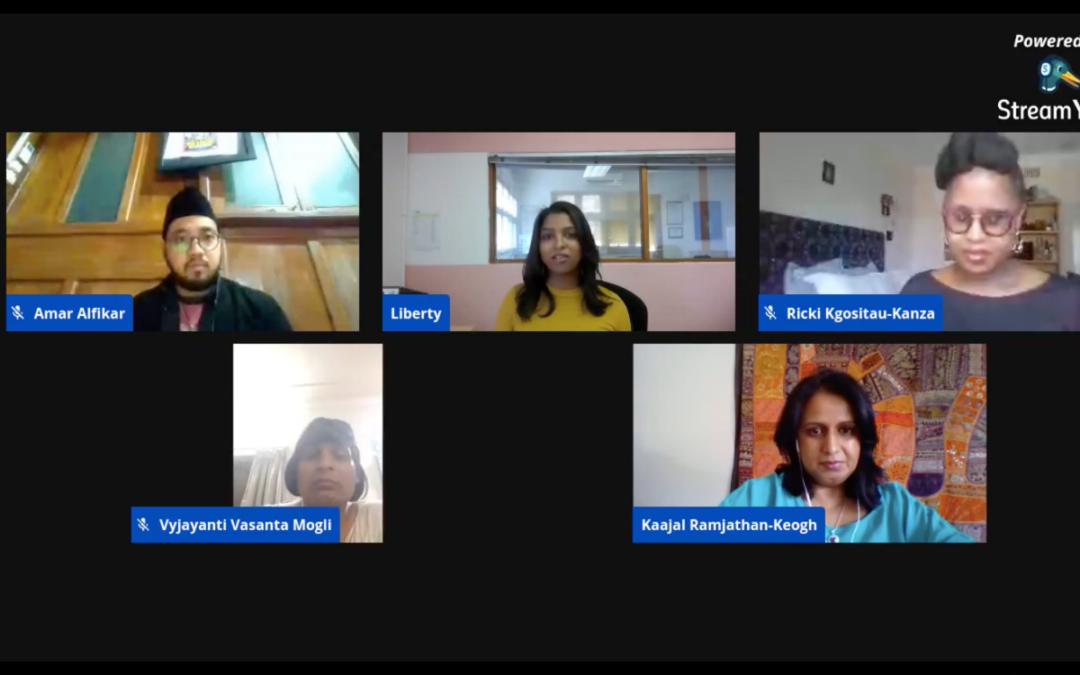
Nov 19, 2020 | News
On 18 November 2020, the ICJ hosted a Facebook Live with four transgender human rights activists from Asia and Africa. It highlighted the stark reality between progressive laws and violent lived realities of transgender people.
The 20th November 2020 marks the Transgender Day of Remembrance (TDOR), the day when transgender and gender diverse people who have lost their lives to hate crime, transphobia and targeted violence are remembered, commemorated and memorialized.
The discussions focused on their individual experiences of Transgender Day of Remembrance in their local contexts, the impact of COVID-19 on transgender communities and whether laws are enough to protect and enforce the human rights of transgender and gender diverse people.
The renowned panelists were from four different countries, Amar Alfikar from Indonesia, Liberty Matthyse from South Africa, Tshepo Ricki Kgositau-Kanza from Botswana and Vyjayanti Vasanta Mogli from India. The panel was moderated by the ICJ Africa Regional Director, Kaajal Ramjathan-Keogh.
The panel aimed to provide quick glimpses into different regional contexts and a platform for transgender human rights activists’ voices on the meaning of Transgender Day of Remembrance and the varied and devastating impacts of COVID-19 on transgender people.
The speakers discussed the meaning that they individually ascribe to Transgender Day of Remembrance. A common theme running across the conversations was that it is not enough to highlight issues and concerns of the transgender community only on this day. Instead, these discussions should be part of daily conversations about the human rights of transgender people at the local and international level.
Liberty Matthyse discussed the importance of remembering the transgender persons who have lost their lives over the past years, and added:
“South Africa generally is known as a country which has become quite friendly to LGBTI people more broadly and this, of course, stands in stark contradiction to the lived realities of people on the ground as we navigate a society that is excessively violent towards transgender persons and gay people more broadly.”
Amar Alfikar describes his work as “Queering Faiths in Indonesia”. This informs his understanding of what Transgender Day of Remembrance means in his country and he believes that:
“Religion should be a source of humanity and justice. It should be a space where people are safe, not the opposite. When the community and society do not accept queer people, religion should start giving the message, shifting the way of thinking and the way of narrating, to be more accepting, to be more embracing.”
It was clear from the discussions that a lot of the issues that have become prominent during the COVID-19 pandemic, have not arisen due to the pandemic. In fact, the COVID-19 pandemic has had the effect of a magnifying glass, amplifying existing challenges in the way that transgender communities are treated and driven to margins of society. Speaking about the intersectionality of transgender human rights, Vyjayanti Vasanta Mogli said:
“I don’t think LGBT rights or transgender rights exist in isolation, they are part of a larger gamut of climate change, racial equality, gender equality, the elimination of plastics, and all of that.”
The panelists had different opinions on whether it is enough to rely on the law for the recognition and protection of the human rights of transgender individuals.
The common denominator, however, was that the laws as they stand have a long way to go before fully giving effect to the right of equality before the law and equal protection of the law without discrimination of transgender people.
Tshepo Ricki Kgositau-Kanza, who was a litigant in a landmark case in Botswana in which the judiciary upheld the right of transgender persons to have their gender marker changed on national identity documents, explained the challenges with policies which, on their face, seem uniform:
“Uniform policies… are very violent experiences for transgender persons in a Botswana context where the uniform application of laws and policies is binary and arbitrarily assigned based on one’s sex marker on one’s identity document which reflects them either as male or female. Anybody in between or outside of that kind of dichotomy is often rendered invisible and vulnerable to a system that can easily abuse them.”
This conversation can be viewed here.
Contact
Tanveer Jeewa, Communications Officer, African Regional Programme, e: tanveer.jeewa(a)icj.org










